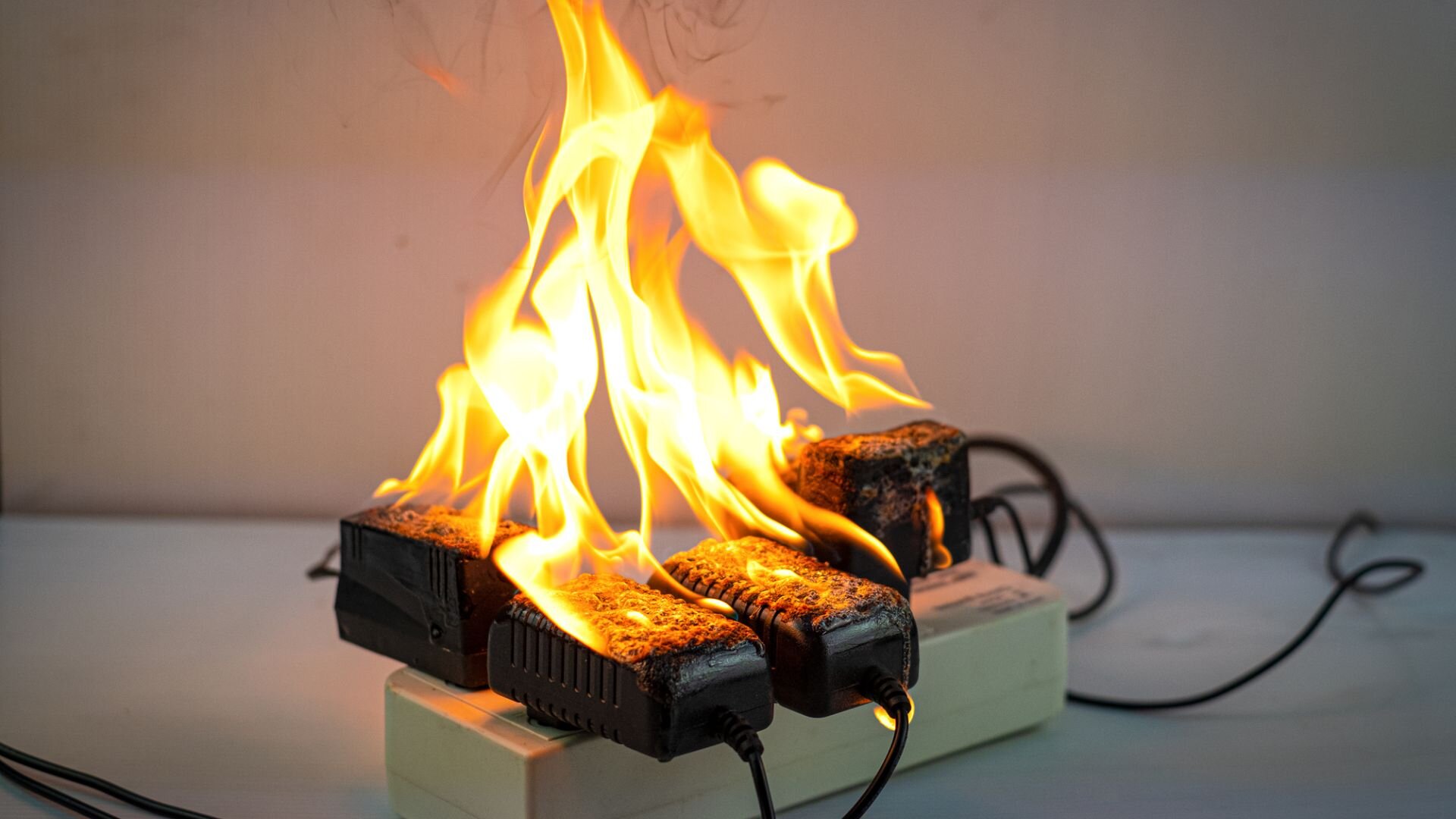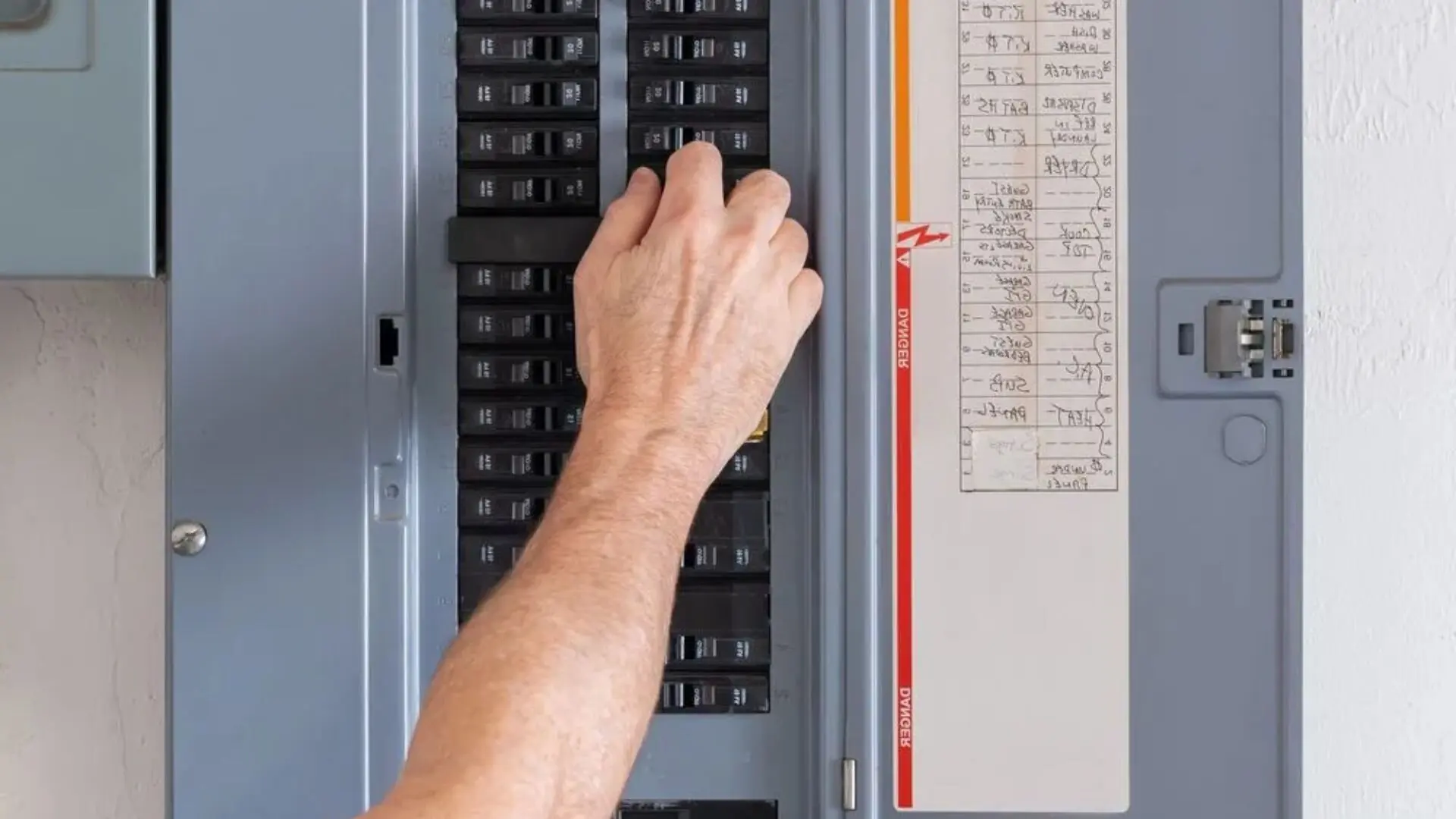At Enersol, our emergency electrical services help prevent and respond to circuit overload emergencies across the Gold Coast. Beep beep! That's the sound of your home's smoke detector blaring at 3 am. You shoot out of bed and realise the noise is coming from your living room. You’re hit with the sharp, unmistakable smell of something burning as you rush over. You flip on the lights to see sparks shooting out from a power outlet as flames lick up your walls.
This nightmarish situation can occur if your electrical circuits are pushed beyond their limit. From the irritation of flickering lights to the devastation of a major fire, overloaded circuits are a severe risk to your home and loved ones. Preparing your home properly to manage electrical demands and responding swiftly to any issues can head off potential disasters.
This article will provide tips on preventing hazardous circuit overloads and preparing for potential electrical emergencies. Following electrical safety best practices can keep your home’s power running safely and smoothly.
Causes of Electrical Emergencies
Electrical emergencies can result from various issues in your home’s electrical system. Identifying and addressing the common causes is the first step in prevention.

Overloaded circuits
One of the top reasons for electrical fires and emergencies is circuit overloads or electrical circuit overloads. This happens when too many appliances, electronics, or devices simultaneously run on the same electrical circuit. The excessive electrical load can overheat the wires and cause dangerous arc faults. Always be mindful of your home’s amperage capacity and avoid plugging high-wattage appliances into the same outlets.
Faulty wiring
Outdated or damaged electrical wiring is another primary culprit behind electrical malfunctions. Frayed cords, loose connections, or cracked insulation can all cause shorts and surges. Schedule regular electrical inspections to detect any worn wiring that needs replacement. Only use wiring that meets modern safety standards.
Old or damaged appliances
Faulty appliances account for around half of home electrical fires. As appliances age, their wiring can degrade, and components can fail. Look for any buzzing, cracking, scorch marks or other red flags. Upgrade ageing appliances and immediately stop using anything that seems hazardous.
Lightning strikes
Though rare, a lightning strike near your home can send a power surge throughout the electrical system. Entire sections of wiring can be instantly overloaded, potentially causing fires. Install high-quality surge protectors and grounding rods to divert stray electrical currents from lightning. This protects your circuits from catastrophic overloads.
Regularly inspecting your home’s electrical panels and being aware of warning signs like flickering lights or warm outlets can help catch developing electrical issues before an emergency occurs.
Preventing Circuit Overloads
Circuit overloads can be prevented by taking some proactive measures. Here are tips on preventing electrical circuit overloads:

Audit Electrical Load and Capacity
It is crucial to have a licensed electrician conduct a thorough evaluation of your home’s electrical system. They will assess the current capacity of your electrical panel and inspect the condition of all wiring. This will allow them to ensure that your electrical infrastructure can safely support the total load from all connected electrical appliances, devices, and electrical equipment.
A detailed inventory of all items drawing power and wattages will identify which are high-power users. The audit determines whether your capacity (often 100 amps) adequately meets your household’s needs or if an upgrade to 200 amps is warranted based on the overall electrical load. Taking these proactive steps will prevent electrical circuit overloads across circuits.
Strategic Appliance Placement
Carefully distributing appliances throughout your home’s electrical circuits is vital to prevent overloads. Plugging too many devices into one outlet or circuit quickly overburdens the system and risks tripping or even fires. Instead, use power strips with built-in circuit breakers to connect multiple appliances safely to an outlet.
Also, diligently turning off or unplugging devices when not in use reduces the electrical load. Evaluate which appliances draw the most wattage and consider moving them to their dedicated circuits if needed. For example, separate the refrigerator, air conditioners, and oven rather than clustering them. A mapped, systematic approach to appliance placement balances electrical flow optimally across all circuits without dangerous bunching.
System Upgrades and Maintenance
If your home’s overall electrical demand has outgrown its current capacity, you might need to consider some upgrades to avoid overloads. Think about boosting your main service panel from 100 amps to 200 amps, or installing dedicated circuits for major appliances to give you a bit more breathing space.
Items like stoves, dryers, HVAC systems, and water heaters may benefit from having their circuits instead of sharing. Preventative maintenance, such as wire inspections and prompt 1-2 electrical repairs of damaged wiring, keeps the system working safely over time.
Being Prepared for Electrical Emergencies
Taking preventative steps can lower the risk of electrical emergencies, but it’s crucial to be prepared just in case. Make sure everyone in your household knows where the main circuit breaker is and how to switch it off.
Keep a fire extinguisher on every level of your home in case of an electrical fire, and have flashlights handy for power outages. Make sure emergency numbers are easy to find and put together an evacuation plan. Install smoke detectors throughout the house, and give them a test each month.
Consider hiring a licensed electrician to set up an electrical surge protector to guard against lightning strikes or power surges. Being prepared in advance can really reduce harm and damage if an electrical emergency crops up. Safety should always top the list when dealing with electricity.
Safeguard Your Home Against Electrical Danger
Circuit overloads and electrical emergencies can pose severe risks to homeowners, but thankfully, they're often preventable. Our emergency electrical services are available 24/7 to help. By grasping the potential causes, taking proactive steps, setting up safety devices, and keeping your electrical system in good nick, you can steer clear of dangerous overloads and be ready for any emergencies.
For professional guidance tailored to your home’s unique needs, contact the experts at Enersol Electrical in Gold Coast. Their licensed electricians can advise you on the right strategies and solutions to keep your home’s electrical system operating safely and efficiently.
Take your time regarding electricity and your family’s safety. Contact Enersol Electrical today to discuss proactive electrical safety steps and prepare your home.